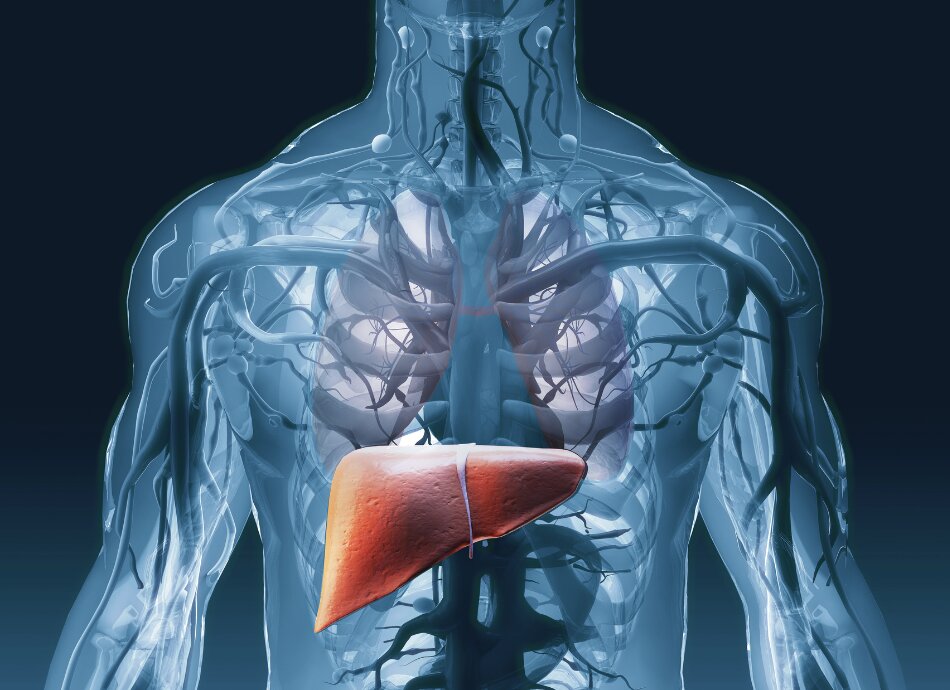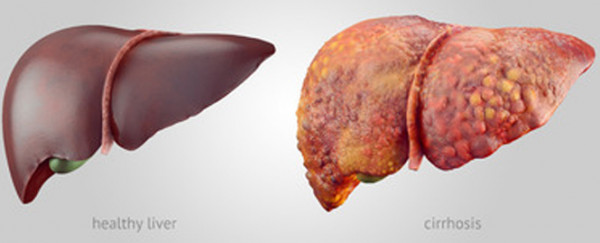Liver disease | Mate ate hauā
Key points about liver disease
- Liver disease (mate ate hauā) can be inherited or caused by damage to the liver, eg, from infection, alcohol use and obesity.
- Over time, damage to the liver causes scarring (cirrhosis), which can lead to life-threatening liver failure.

The liver is the largest organ in our body and sits just under your rib cage on the right side of your abdomen. It performs many important functions involved in digesting foods and ridding your body of toxic substances such as:
- producing bile to help break down food in the gut
- breaking down harmful substances such as alcohol from the body
- storing nutrients and vitamins
- regulating the levels of many hormones and substances in the body such as cholesterol
- fighting infections and disease
- making the chemicals that allow your blood to clot when you're bleeding.

Image credit: 123rf
There are many different types of liver diseases or disorders, caused by a variety of factors. The following are examples of the common causes of liver disease:
Causes |
Type of liver disease |
Infection
|
|
Alcohol
|
|
Obesity or overweight (BMI > 30)
|
|
Drugs
|
|
Genetics
|
|
Immune system abnormality
|
|
The common symptoms of liver disease include:
- skin and eyes appear yellow (jaundice)
- abdominal pain and swelling of the abdomen (tummy area) or legs
- itchy skin
- dark coloured urine and pale coloured poo (stools)
- weakness, feeling tired, weight loss
- tendency to bruise easily.
When to see a healthcare provider
Make an appointment with your healthcare provider if you have any ongoing signs or symptoms that worry you. Seek immediate medical attention if you have abdominal pain that is so severe that you can't stay still.
Not all types of liver disease can be prevented, eg, those due to genetic causes or immune system abnormalities. But some types of liver disease, especially those related to lifestyle choices, can be prevented.
Alcohol moderation
Avoiding excessive consumption of alcohol is an important first step in looking after your liver. Both men and women can get liver damage from excessive alcohol. Current recommendations are for no more than 2 standard drinks/day for women and 3 for men, with at least 2 alcohol-free days each week.
If you drink a lot of alcohol regularly or you develop shakiness (or even seizures) when you cut back or go without alcohol, talk to your doctor about how to safely cut down on your alcohol. If your body is addicted to alcohol, stopping suddenly can make you very sick or even kill you. Speak honestly with your doctor or nurse about your drinking.
Video: The stages of alcohol-related liver disease
This video is about liver disease and alcohol.
Weight reduction
Approximately 75% of obese people have a fatty liver. If you are overweight or obese, gradual weight loss and increasing exercise can reduce your risk of developing a fatty liver. Avoid rapid weight loss of more than 1 kilogram per week, as this can make liver disease worse.
Quit smoking
Cigarette smoking may worsen some liver diseases and may increase your risk of developing liver cancer. Smoking impairs the liver’s ability to process medications, alcohol and other toxins and remove them from the body.
Get vaccinated
If you're at increased risk of contracting hepatitis or if you've already been infected with any form of the hepatitis virus, talk to your doctor about getting the hepatitis A and hepatitis B vaccines.
Practice safe sex
It’s not just HIV and other sexually transmitted infections you need to worry about with unsafe sex. Hepatitis B and C can both be contracted through unprotected vaginal or anal sex. The risk is increased during menstruation and with multiple sex partners.
Avoid risky behaviour
Intravenous drug use is a common way of contracting Hepatitis B and C, especially if needle sharing in involved. Sharing personal items like a toothbrush or razor blade with others can also transmit Hepatitis B and C.
Use medicines wisely
Talk to your doctor or nurse prescriber before mixing prescription medicines and herbal or dietary supplements. Only take prescribed or recommended doses and ask your healthcare provider or pharmacist if you need to avoid alcohol while taking any of your medicines.
Apps reviewed by Healthify
You may find it useful to look at some Alcohol use apps, Quit smoking apps, and Nutrition, exercise and weight management apps.
Liver disease(external link) The Hepatitis Foundation of New Zealand
Liver disease(external link) NHS Choices
Brochure
Alcohol and you – facts and effects [PDF, 5.3 MB] Health Promotion Agency
Apps
Alcohol use apps
Quit smoking apps
Nutrition, exercise and weight management apps
References
- Liver disease(external link) The Hepatitis Foundation of New Zealand, 2024
A spotlight on the key causes of chronic liver disease(external link) BPAC, NZ, 2024
Hepatitis(external link) Best Practice Journal, NZ, 2009
Abnormal liver chemistry – evaluation and interpretation(external link) British Columbia Guidelines and Protocols Advisory Committee, August 2011
Continuing professional development
Abnormal LFTs by Dr Kumudith Ekanayaka (external link)The Goodfellow Unit, NZ, 2018
Apps
Alcohol use apps
Quit smoking apps
Nutrition, exercise and weight management apps
Credits: Healthify editorial team. Healthify is brought to you by Health Navigator Charitable Trust.
Reviewed by: Dr Art Nahill, Consultant General Physician and Clinical Educator
Last reviewed:





